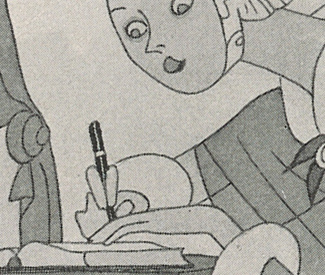Preface to the Edition
Daniel G. Tracy, Editor
Explore the Edition Components
Editor’s Introduction

Read about the conceptualization of the edition and its significance for scholars, students, and casual readers.
Go to Editor’s Introduction
Text and Illustrations

Read the novel or examine the variants in the text and visual presentation between the two original published editions.
Go to the Text and Illustrations of Gentlemen Prefer Blondes
Critical Context

Read about the production and reception of Blondes, explore maps of locations in the text, read about historical references, and read biographies of writer Anita Loos and illustrator Ralph Barton.
Read Critical and Biographical Context
Production of the Edition

Read information about the technical production of and contributors to the edition.
Read Production of the Edition